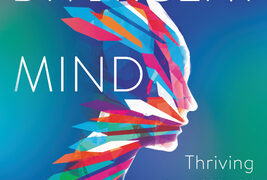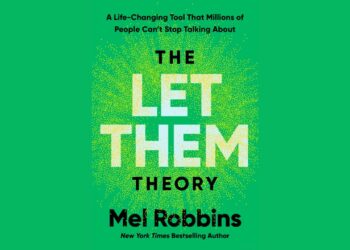Table of Contents
- Introduction: A World Built for the Neurotypical
- The Central Premise: Invisible Struggles, Misunderstood Brains
- Part One: The Hidden Faces of Neurodivergence
- 1. Why Neurodivergent Women Go Unseen
- 2. Labels, Language, and Liberation
- Part Two: Understanding the Neurodivergent Brain
- 3. Sensory Processing Sensitivity
- 4. ADHD, Autism, and the Female Experience
- Part Three: Thriving in a Neurotypical World
- 5. Masking and Burnout
- 6. The Power of Self-Diagnosis
- Part Four: Building a Life That Works for You
- 7. Embracing Neurodivergence as a Strength
- 8. Designing Environments That Support You
- Key Takeaways and Quotes
- Conclusion: A Manifesto for the Divergent Mind
Introduction: A World Built for the Neurotypical
Divergent Mind: Thriving in a World That Wasn’t Designed for You by Jenara Nerenberg is a bold and necessary exploration of how neurodivergent individuals—particularly women—navigate a society that was not built with their minds in mind. Nerenberg pulls from neuroscience, psychology, personal anecdotes, and interviews to make the case that many women living with ADHD, autism, sensory processing disorder, synesthesia, and high sensitivity are often undiagnosed, misdiagnosed, or misunderstood.
She emphasizes that instead of viewing neurodivergence as a pathology to be corrected, it should be seen as a variation of human wiring that deserves recognition, accommodation, and celebration.
The Central Premise: Invisible Struggles, Misunderstood Brains
Nerenberg’s key argument is that many neurodivergent women live under the radar because diagnostic criteria for conditions like autism and ADHD are based primarily on male behaviors and developmental patterns. This creates a massive blind spot in psychology and medicine, where women are often told they have anxiety, depression, or personality disorders—when, in fact, their brains are simply wired differently.
Many women go undiagnosed until adulthood or are diagnosed with something that only scratches the surface of their experience. These women are left to feel like there is something fundamentally wrong with them, rather than realizing they belong to a group of minds that simply function differently.
Part One: The Hidden Faces of Neurodivergence
1. Why Neurodivergent Women Go Unseen
Nerenberg starts by introducing the concept of “invisible neurodivergence.” Women often excel at masking—subconsciously mimicking the behaviors and social norms of those around them. This adaptive strategy allows them to “pass” as neurotypical but comes at a high cost: burnout, confusion, and chronic self-doubt.
Diagnostic criteria often overlook traits more common in females:
- Internalized hyperactivity in ADHD (racing thoughts rather than disruptive behavior)
- Quiet and compliant behaviors in autistic girls
- Overwhelm and sensory overload mistaken for anxiety
Nerenberg explains that because girls are socialized to please, they often suppress their authentic selves to avoid rejection, which delays or entirely blocks proper diagnosis.
2. Labels, Language, and Liberation
The book addresses the power and limitations of labels. Nerenberg advocates for a more nuanced and inclusive language around mental health and neurology. Terms like “high-functioning” or “low-functioning” often reduce the complexity of people’s lived experience.
Instead, she pushes for broader awareness and open dialogue about what neurodivergence really looks like, beyond the stereotypes perpetuated in media or outdated medical literature.
Part Two: Understanding the Neurodivergent Brain
3. Sensory Processing Sensitivity
A major theme in Divergent Mind is sensory sensitivity. Many neurodivergent women are highly sensitive to light, sound, smell, texture, or emotional energy. Nerenberg introduces Dr. Elaine Aron’s work on the “Highly Sensitive Person” (HSP), which resonates deeply with readers who’ve been overwhelmed in environments others find manageable.
This sensory sensitivity is often misunderstood:
- Overstimulation is mistaken for emotional instability
- Social withdrawal is seen as antisocial behavior
- Attention to detail is dismissed as perfectionism
Yet these traits, when honored, can be superpowers. Sensory attunement can lead to deep empathy, creative brilliance, and unique insights.
4. ADHD, Autism, and the Female Experience
Nerenberg spends significant time dissecting how ADHD and autism manifest differently in women:
- ADHD in women is often characterized by mental restlessness, emotional sensitivity, and executive dysfunction. These are frequently mistaken for mood disorders.
- Autism in women tends to involve intense interests, sensory issues, and social mimicry—but without the external behavioral “flags” seen in boys.
Women with these traits are often dismissed as “too emotional,” “too sensitive,” or “just shy.” Nerenberg stresses that these dismissals are not only inaccurate—they are damaging.
Part Three: Thriving in a Neurotypical World
5. Masking and Burnout
A recurring struggle is the exhausting act of masking—pretending to be neurotypical. Masking might involve copying facial expressions, scripting conversations in advance, or forcing eye contact.
While masking helps women blend in socially or succeed professionally, it drains mental energy and leads to burnout. Nerenberg shares stories of women who lived decades suppressing their needs—until their physical or mental health collapsed.
She urges neurodivergent people to honor their limits, needs, and boundaries instead of bending endlessly to fit societal molds.
6. The Power of Self-Diagnosis
Many readers may find themselves resonating with the experiences described in the book, even if they’ve never received an official diagnosis. Nerenberg gives permission for self-identification to be valid, especially when medical systems fail to recognize neurodivergence.
She encourages women to trust their intuition and research, particularly when traditional medicine gaslights or minimizes their symptoms. For many, self-awareness can be the first liberating step toward acceptance and healing.
Part Four: Building a Life That Works for You
7. Embracing Neurodivergence as a Strength
Nerenberg flips the narrative from deficit to difference. She argues that neurodivergent brains often contain unique abilities:
- Pattern recognition
- Creative problem solving
- Deep empathy and intuition
- Hyperfocus and perseverance
Rather than suppressing these gifts, she calls for a reimagined society that values different cognitive styles—not just the loudest or most productive.
8. Designing Environments That Support You
Environmental design is crucial. From sensory-friendly lighting to flexible work schedules, Nerenberg outlines practical ways that workplaces, schools, and homes can become more inclusive.
She also emphasizes community—connecting with other neurodivergent individuals helps reduce isolation and promotes self-understanding. Online forums, support groups, and social media spaces can serve as lifelines for people navigating this journey.
Key Takeaways and Quotes
- “There is no one normal brain. There is only the dominant narrative of what is considered valuable in a capitalist, patriarchal society.”
- “Women with ADHD are often not bouncing off the walls. They’re bouncing inside their minds.”
- “Your sensitivity is not a flaw—it’s your radar.”
- “When a woman doesn’t fit the diagnostic boxes, she often gets a different label: anxious, depressed, or difficult.”
Conclusion: A Manifesto for the Divergent Mind
Jenara Nerenberg’s Divergent Mind is both a mirror and a map. It reflects the hidden struggles of neurodivergent women, and it guides them toward a path of self-discovery and empowerment. The book does more than highlight systemic blind spots—it offers validation, community, and hope.
By advocating for a broader understanding of how brains work, Nerenberg invites us to move beyond narrow definitions of intelligence, productivity, and success. Neurodivergent individuals are not broken—they are simply wired for a different kind of brilliance.
Final Thoughts: Who Should Read This Book?
- Women who feel “different” but don’t know why
- Adults who suspect they may have ADHD or autism
- Parents of sensitive or neurodivergent children
- Therapists, educators, and employers
- Anyone interested in making the world a more inclusive place
Divergent Mind is a much-needed voice in the growing neurodiversity movement. It’s a call to action—not only to embrace your own wiring, but to help change a system that’s long neglected brilliant, sensitive, and misunderstood minds.





















